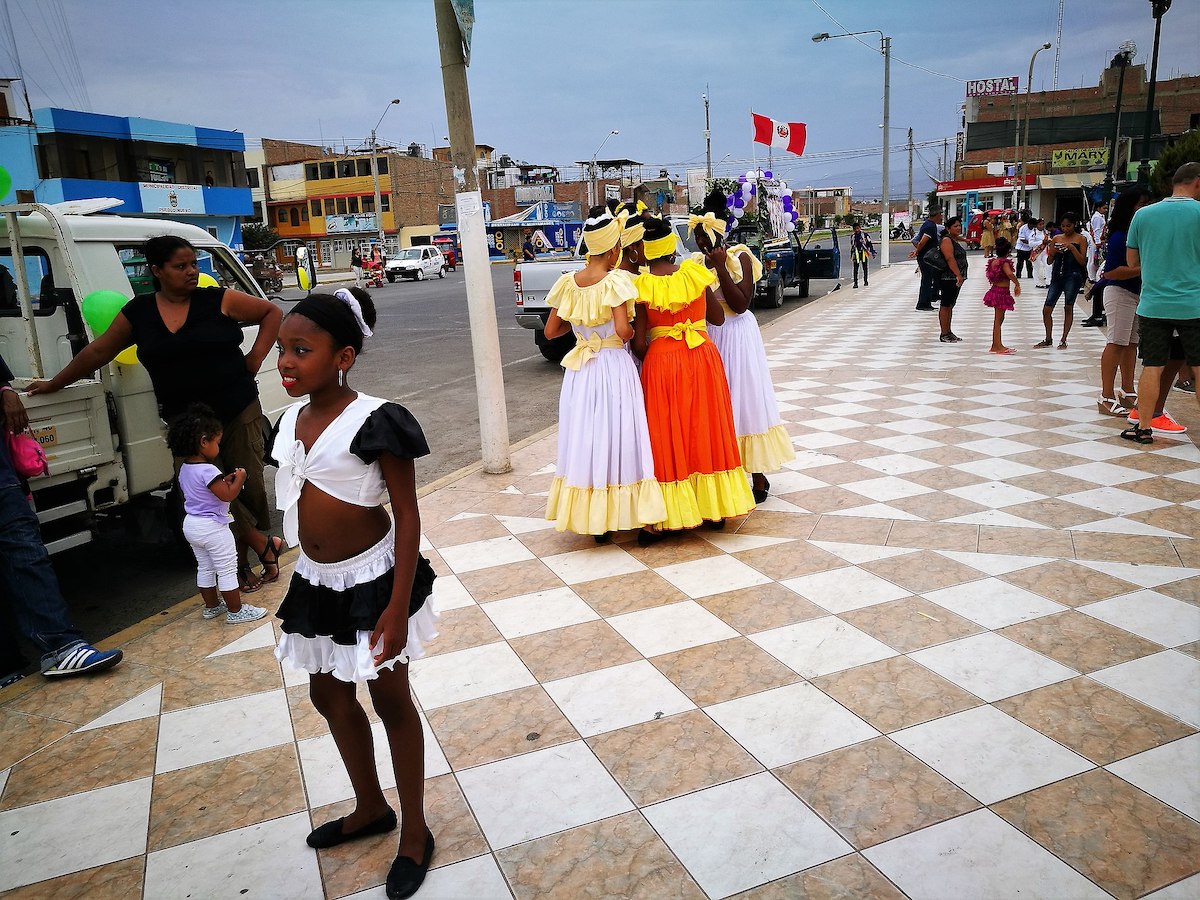In this teaching spotlight we focus on Professor Regina Cortina’s Decolonial Theory in Comparative Education class. To understand what makes this class unique, engaging, and impactful, three of Professor Cortina’s students have shared examples of their final projects and offered insights from their learning. We asked Izabela de Souza, Max Keisling, and Nicolle Salazar, who took Decolonial Theories in Comparative Education in the 2021 fall semester, to reflect on why they took the course, how they would explain decolonial theories to people outside our program, and what teaching strategies resonated with them the most.
For Izabela, who is focusing on human rights in Latin America for her integrative project, she was looking for a global south-specific lens to further develop her understanding of education in the region. For Max, whose background is rooted in music education, this course was an opportunity to unpack and challenge the Eurocentrism of his field. Despite efforts to diversify music education in schools and higher education, Max describes how many students only “dip their toes” in other cultures, essentially becoming musical tourists and “tokenizing” other forms of music making. As such, Max took the class to advance his own understanding of how colonialism has impacted music education and to deconstruct how his own beliefs and practices were rooted in colonial ways of knowing.

For Izabela’s final project, she facilitated a class quiz connecting Brazilian rap with theories of decoloniality.
After studying Anthropology for her undergraduate degree, albeit through perspectives still anchored to the field's colonial heritage, Nicolle took this course to engage with Latin America in a way that wasn’t defined by white and/or Western scholars from outside the region. When she saw that the syllabus included work by Latin American anthropologists and sociologists, Afro-Descendant and Latinx, she was excited by the new sense of depth and the complex insights on comparative education that she could gain.
In terms of how Nicolle would explain decolonial theories to people outside the program, she shares that it’s a way of “decentering the West and shifting our focus to the pedagogies of marginalized communities who are fighting against the legacies of colonialism.”

Nicole’s final project looked at the history of Afro-Peruvians and their contributions to national cultural development.
For Max, he would share how “colonialism is not a thing of the past… It still influences how we think of our daily lives, our jobs, and our relationships.” In this sense, the course was first about how colonialism’s influence plays out in education and development, and then about the ways in which indigenous or southern “knowledge” and ways of “knowing” can offer an alternative model for living and learning in the so-called “post-colonial” world.
Izabela wants to explain decolonial theories to her mother who does not speak English. However, Izabela reflects on the fact that explaining decolonial theory in standard Brazilian-Portuguese creates a kind of disconnect with her community. “They do not see me as one of them anymore. It would be as if I had sold myself to the system, in which case I need to code-shift and use Brazilian slang.” To her mother she says:
“Tem esse parça que é da perifa e se deu bem na vida. Mas ele não virou as costas. O cara aprendeu a fazer tudo que os brancos faziam, desfile, roupa, música, por si memo, mas com a sabedoria dos pretos. Hoje ele leva mais de nois com ele. Descolonização é isso, é tirar essa ideia de que o gringo é superior e centrar nas nossas raízes e identidades, valorizar quem somos, nossas vivências. Isso quebra expectativas e bota nois em campo pra jogo.”
Above, Izabela uses an example of someone who “gains access to better opportunities and uses them to elevate others like us, learning to do what the most successful people in his field can do, but in a way that is centered in and privileges Afro-Brazilian knowledge.”
In terms of the teaching strategies that resonated most, Max values the quality of Professor Cortina’s discussion facilitation. Her “knowledge of decoloniality helped further develop our understanding of at times complicated ideas” and “although classes could have easily turned into lectures, we were encouraged to contribute our own ideas and theories, too.”
Nicolle agrees, remembering how Professor Cortina and Teaching Assistant Marcella Winter “encouraged open, honest discussion on topics that could be controversial or difficult to discuss…. We were even encouraged to contest the points Professor Cortina and Marcella made.”
Izabela believes that this model, paired with the diversity of students and perspectives in the room, “allowed us to learn just as much from each other.” As Nicole says, Professor Cortina and Marcella “created a safe space to learn, ask questions, and debate.” Which, as Max shares, “created a really supportive learning environment” and “allowed our class to grow together.”

Using Stata, Max completed a quantitative study of the coloniality of music standards in PK-8 schooling.
Photo credit: Pitxiquin (CC 4.0)
